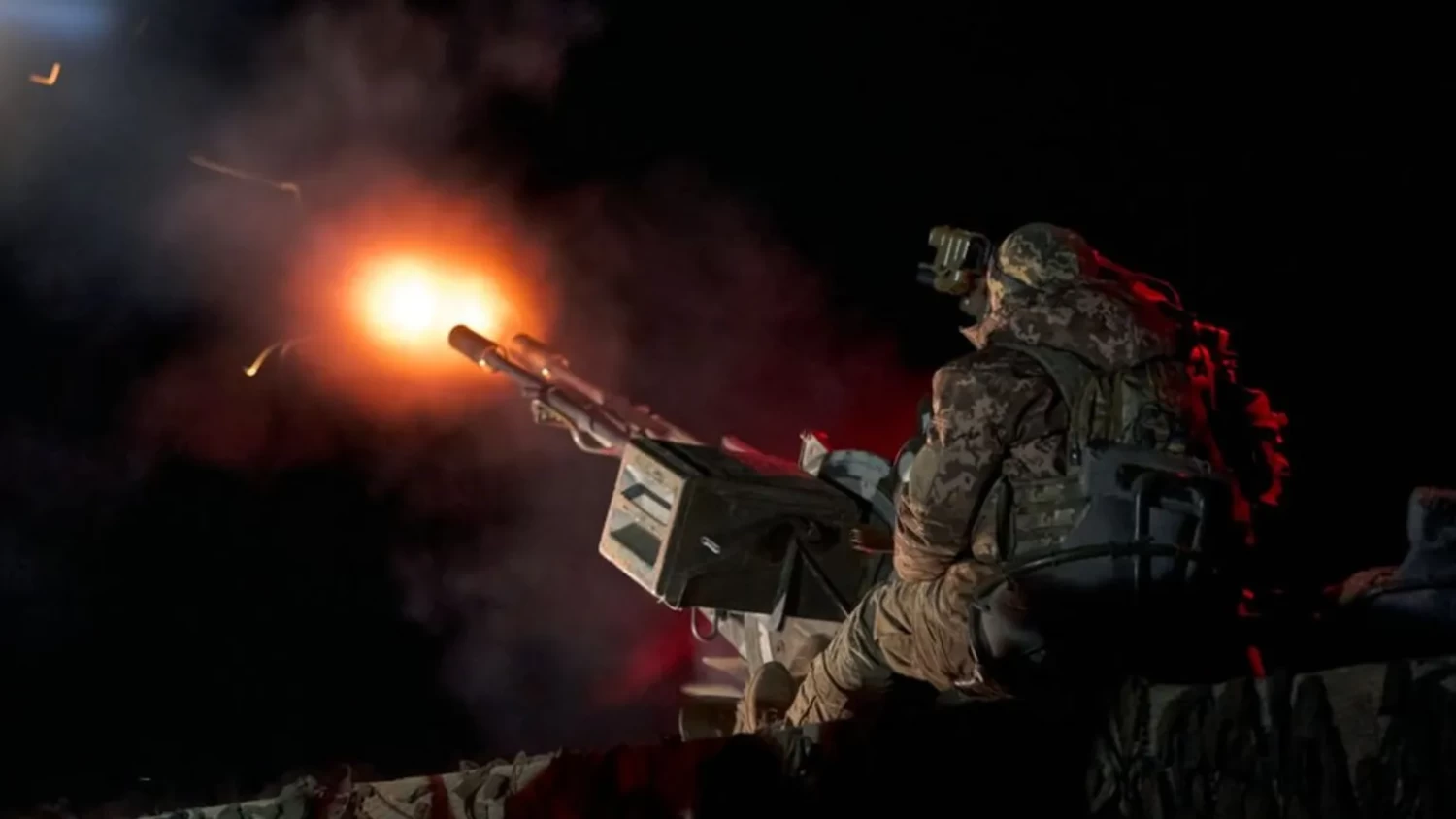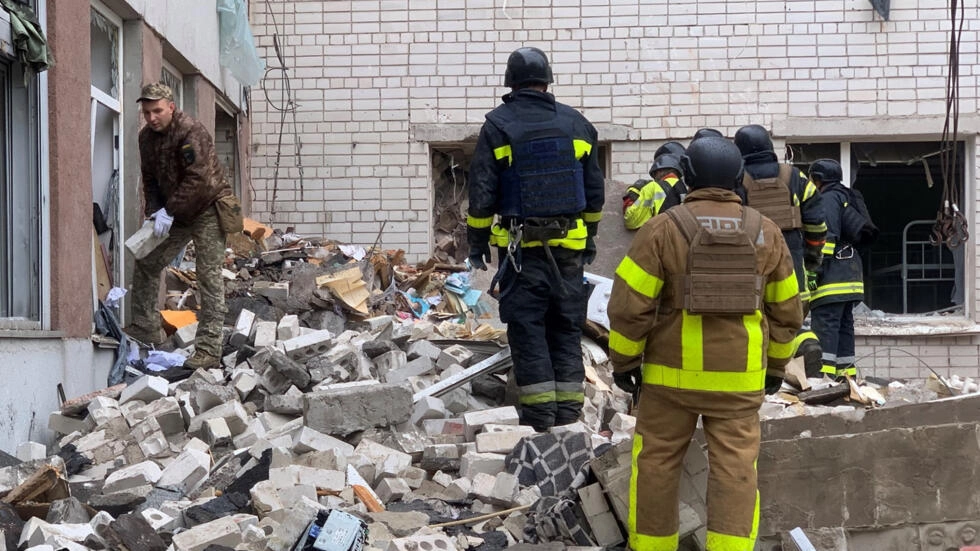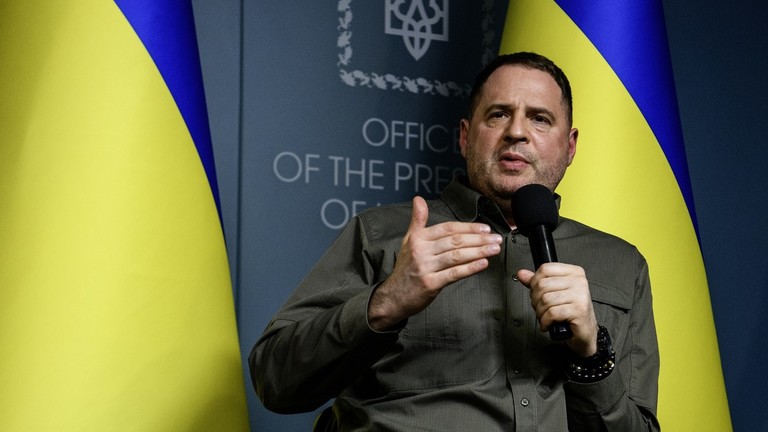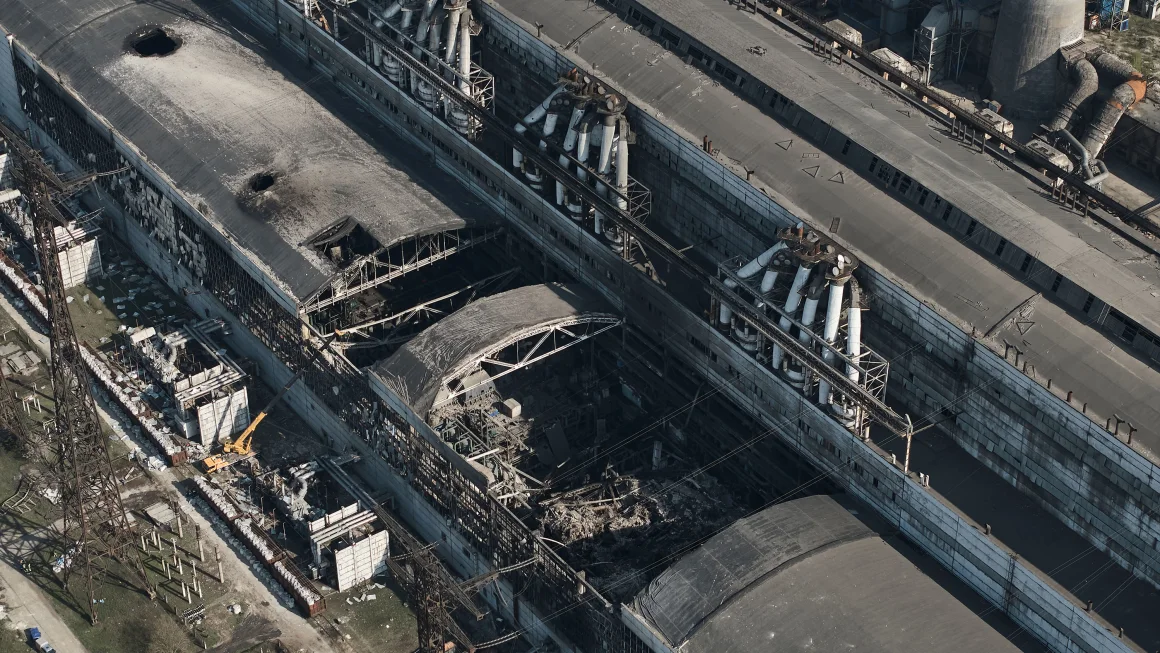This article is more than
1 year oldUkraine war: Russia accused of using phosphorus bombs in Bakhmut
Ukraine has accused Russia of attacking the besieged city of Bakhmut with phosphorus munitions.
Ukraine accuses Russia of phosphorus attack on Bakhmut
In drone footage released by Ukraine's military, Bakhmut can be seen ablaze as what appears to be white phosphorus rains down on the city.
White phosphorus weapons are not banned, but their use in civilian areas is considered a war crime.
They create fast-spreading fires that are very difficult to put out. Russia has been accused of using them before.
Russia has been trying to capture Bakhmut for months, despite its questionable strategic value. Western officials have estimated that thousands of Moscow's troops have died in the assault.
Writing on Twitter, Ukraine's defence ministry said the attack had targeted "unoccupied areas of Bakhmut with incendiary ammunition".
It is unclear when it took place. But the footage shared by Ukraine - seemingly captured by a surveillance drone - showed high-rise buildings engulfed in flames.
Other videos posted to social media showed fires raging on the ground and white clouds illuminating the night sky.
A BBC analysis of the video posted by the defence ministry located the footage to an area just west of Bakhmut city centre and close to a children's hospital. While the analysis confirmed the attack used some kind of incendiary munitions, it could not verify the use of phosphorus.
Russia has been accused of using white phosphorus in Ukraine, including during the siege of Mariupol at the beginning of the war.
Moscow has never publicly admitted to using the substance, and last year Kremlin Press Secretary Dmitry Peskov insisted "Russia has never violated international conventions" after Ukrainian President Volodymyr Zelensky said it had been used.
White phosphorus is a wax-like substance that burns at 800C and ignites on contact with oxygen, creating bright plumes of smoke.
Human Rights Watch (HRW) has warned the chemical is "notorious for the severity of the injuries it causes".
It is extremely sticky and hard to remove, and can re-ignite when bandages are removed.
Russia has signed the Convention on Certain Conventional Weapons, which bans the use of incendiary weapons - which are designed to catch fire - in civilian areas.
But HRW says white phosphorus does not fall under the treaty as its primary purpose is to "create a smokescreen to hide military operations".
The chemical has been used "repeatedly over the past 15 years", including by US forces against IS fighters in Iraq and Syria, according to HRW.
Some analysts say its use as an incendiary weapon near civilians would still be illegal. While Bakhmut had a pre-war population of 80,000, there are practically no civilians left in the area.
The attack comes a day after the commander of Russia's Wagner paramilitary group said he would pull his forces out of Bakhmut on 10 May in a row over ammunition supplies.
Yevgeny Prigozhin said Wagner's casualties were "growing in geometrical progression every day", and blamed the defence ministry for his decision to withdraw.
On Saturday, Prigozhin said Ramzan Kadyrov - the leader of Russia's semi-autonomous Chechnya region - had agreed to take over Wagner positions in the city and replace their fighters with his own.
"I am already contacting his representatives in order to start transferring positions immediately, so that at 00:00 on 10 May," Prigozhin's press service quoted him as saying.
Despite his claims, Ukrainian officials said Wagner was redeploying mercenaries towards Bakhmut in a bid to capture the city before Tuesday's Victory Day celebrations in Russia.
"We are now seeing them pulling [fighters] from the entire offensive line where the Wagner fighters were, they are pulling [them] to the Bakhmut direction," Deputy Defence Minister Hanna Maliar said.
The fighting comes amid reports that Ukraine is preparing a large-scale counteroffensive. Prigozhin himself has said he believes the attack could come as soon as 15 May.
An offensive could take place in the Zaporizhzhia region which is about 80% controlled by Russia.
On Friday, the Russian-installed governor of Zaporizhzhia ordered the evacuation of villages near the front line.
Russia considers the area as its own territory, following self-styled referendums and an illegal annexation last year.
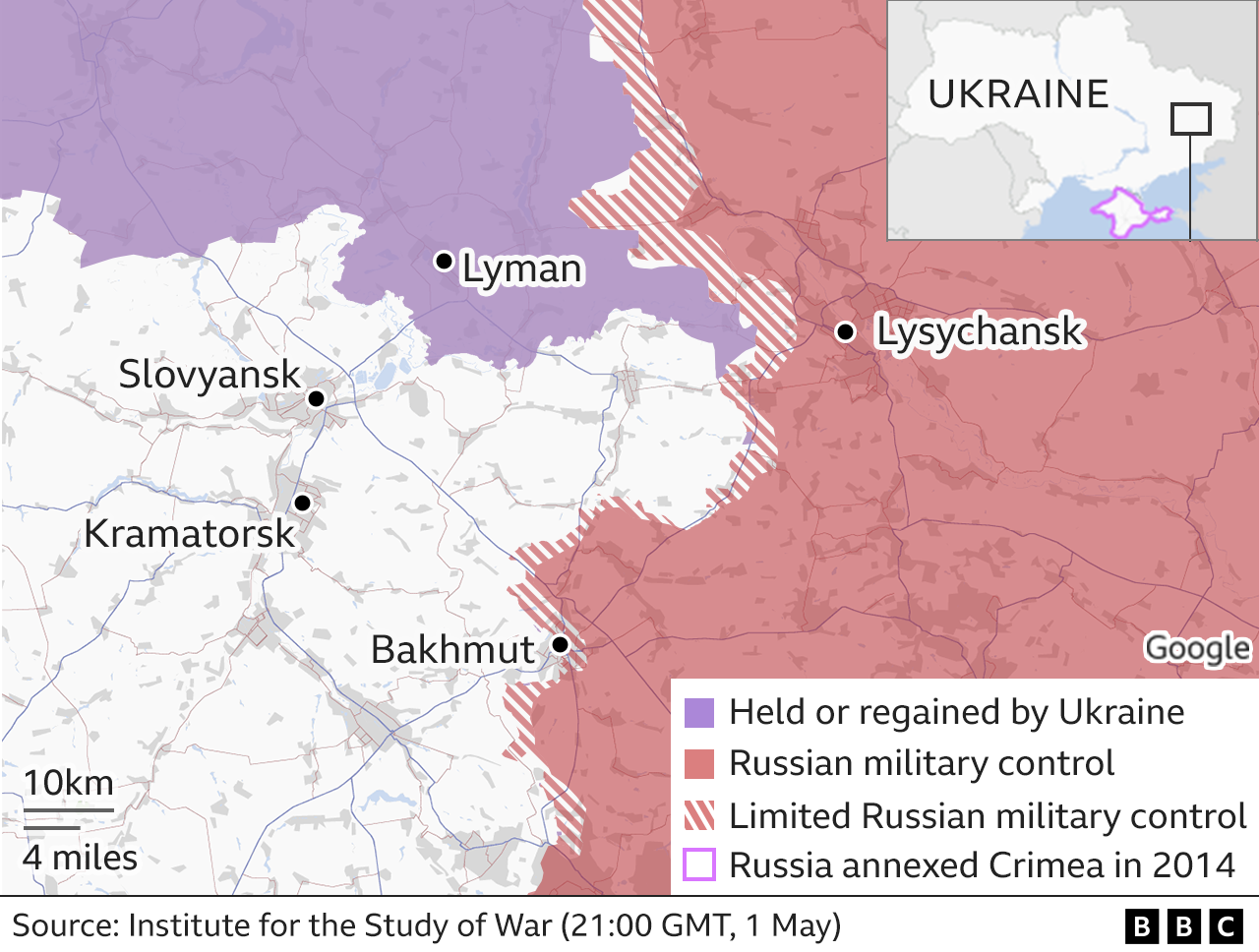
Keywords
Newer articles
Ray J on Why Diddy's Friends Haven't Come to His Defense: 'I Think A Lot of People Are Trying to Understand It'
Taylor Swift’s music returns to TikTok even as label fights over artist compensation
Netflix hit inundated with complaints
Khloe Kardashian hounded after OJ’s death
Trump offers conditions for Ukraine aid renewal
Why Israel is risking a dramatic escalation with Iran
India calls for ‘immediate de-escalation’ amid Israel-Iran tensions
Bianca Censori stuns in extreme v-neck dress
Israel’s War Leaders Don’t Trust One Another
